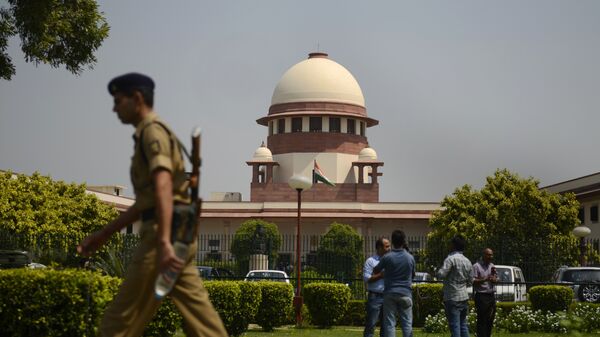New Delhi (Sputnik) — Giving a landmark ruling in the much-contested Ayodhya dispute case, the Supreme Court of India ordered the formation of a three-member committee to mediate in the case which involves the construction of a temple at a spot believed to be the birthplace of Hindu god Ram. It has been widely held that a mosque, Babri Masjid, was built on the location in the medieval Mughal-era. The mosque was demolished in 1992 by a Hindu radical mob after a nationwide movement.
#Ayodhya case: Top court orders mediation, says the proceedings should be held on-camera and will be confidential
— NDTV (@ndtv) March 8, 2019
Mediation process will be held in Faizabad and the first status report to be submitted in four weeks.
Follow LIVE now on https://t.co/hMlRpgrUU6 and NDTV 24x7 pic.twitter.com/Tk2aHXnsUw
Under the BJP, with leader Narendra Modi in power, demands for the construction of the Ram temple have been surging. The movement which resulted in demolition of the controversial Babri Masjid structure in 1992 was also led by BJP.
The Ayodhya dispute erupted soon after Indian independence in 1949, when an idol was placed for worship in the Mughal-era structure after which tensions broke out and the structure was sealed. After years of communal animosity, in 1986, the central government ordered the opening of the structure for worship. But public support for razing down of the Mughal structure gained momentum towards late 1980s into early 1990s, resulting in the demolition of the mosque in 1992. The demolition resulted in communal violence across the country in December that year.



